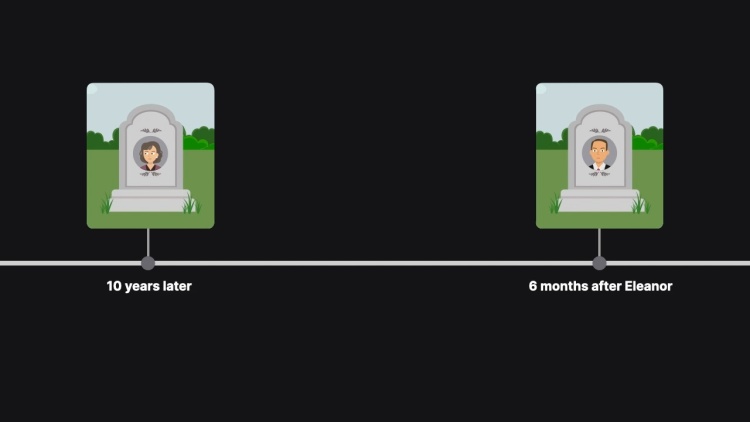Estate of Dye
California Court of Appeal
92 Cal. App. 4th 966 (2001)
- Written by Angela Patrick, JD
Facts
Haskell Dye had two biological sons with his first wife. After that marriage ended, Dye’s first wife remarried, and Dye’s two biological sons were legally adopted by their new stepfather. Dye remarried a woman named Eleanor. Eleanor already had a son, Scott (plaintiff), and Dye legally adopted Scott. Dye and Eleanor executed form wills leaving their entire estates to each other. Eleanor died first, and her estate passed to Dye. Dye passed away a few months later without changing his will. Scott filed a probate action to distribute Dye’s estate. Because Dye’s will did not have a valid beneficiary, his estate was distributed under the intestacy laws. One of Dye’s biological sons and a biological grandson (defendants) each filed a claim to part of Dye’s estate. The trial court found that the biological son and grandson were entitled to inherit from Dye under intestacy laws. Scott appealed, arguing that he had evidence that Dye had wanted to disinherit his biological sons and that it was unjust to distribute the estate to the very people Dye did not want to receive it.
Rule of Law
Issue
Holding and Reasoning (Morrison, J.)
What to do next…
Here's why 907,000 law students have relied on our case briefs:
- Written by law professors and practitioners, not other law students. 47,100 briefs, keyed to 996 casebooks. Top-notch customer support.
- The right amount of information, includes the facts, issues, rule of law, holding and reasoning, and any concurrences and dissents.
- Access in your classes, works on your mobile and tablet. Massive library of related video lessons and high quality multiple-choice questions.
- Easy to use, uniform format for every case brief. Written in plain English, not in legalese. Our briefs summarize and simplify; they don’t just repeat the court’s language.





